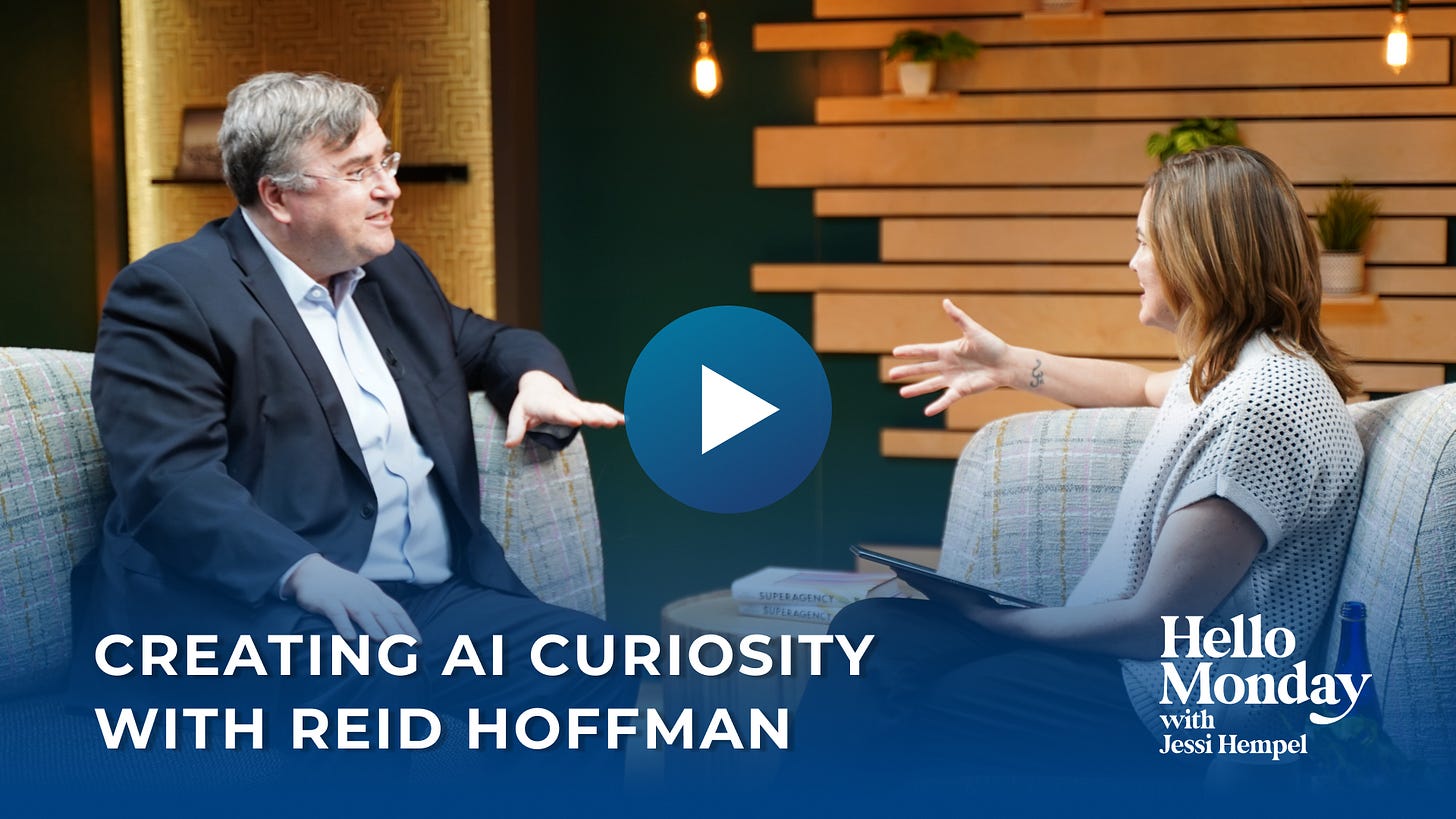Reid Hoffman’s No-BS guide to winning
In Reid's vision of the future, AI can enrich personal interactions and broaden social relationships
The theoretical limit on the number of stable social relationships that a person can maintain at any given time is 150. This is called the Dunbar Number after British anthropologist Robin Dunbar. Two decades ago, he came up with it by studying the social connections in groups of monkeys and mapping this information to brain size. Ever since then, Reid Hoffman has been trying to prove him wrong.
🎧 Check us out on YouTube, Apple Podcasts or Spotify 🎧
I think of Reid as the guy who invented social networking—not the old-fashioned handshaking type we’ve always relied on, but the tech type that has refashioned the way we keep track of people in our lives. He started the very first social networking website, Socialnet.com, back in 1997. He met Mark Zuckerberg very early on, and helped broker Facebook’s first $500,000 investment. And of course he helped start the company for which I now work, LinkedIn, back when most execs thought the idea of exposing your little black book was career suicide.
But the real reason behind his success is his ability to navigate his own social network—the ever-expanding group of people he calls his tribe. Reid has always had a habit of making time for people because their ideas are interesting, not necessarily profitable, and he does favors for his friends out of a genuine affection for them and the desire to see them succeed. But whereas most people are capable of doing this with, say, a dozen family members and close friends, Hoffman can keep track of hundreds.
Years ago, I interviewed a bunch of them for a magazine profile that never got published, and I’ve still got the notes. I spoke to Peter Thiel, who had been a close friend since they’d met in a Stanford philosophy class. “Once years ago, the question came up about the meaning of life,” Peter told me. “Reid said he thought it had something to do with the relationships you build along the way.”
So when Reid’s team reached out to explore whether he should come into the studio to discuss his new book, Superagency: What Could Possibly Go Right with Our AI Future, I knew it was a huge opportunity for our audience. For one, Reid’s thinking on the future has proven prescient. He’s a high-level empath. There have always been a lot of geniuses in Silicon Valley, but Reid’s contributions to social have been outsize because he pairs that IQ with an unusually high EQ. So his perspectives on the potential of AI put people in the center. And he’s got a pretty good track record for being right about things.
This conversation was filmed live for thousands of viewers, and you’ll hear their questions as we go. Our team captured the best of it in this week’s vodcast—because yes, we are on YouTube now!—and you can see it here:
I Can’t Stop Thinking About This…
Recently, Ezra Klein spoke to Kara Swisher about Elon Musk. Of all the conversational banter, his insights about the shortcomings of our legal system most resonated with me: “I think something Musk understands… is that at high levels of society, the recourse for breaking a law or a rule is legal.” In short, when you break a law, you don’t have to stop your course of action. Instead, you get sued. Those lawsuits take a very long time. And by the time they’re resolved, you’ve like achieved your larger objective.







So enjoyed your conversation with Reid which motivated me to try engaging with AI in a different way over the weekend. His advice to "ask the AI for how to work with it" is also great advice for life. "What's the best way for me to work with you?" is a nice opener to a colleague. Reminded me of a business school assignment to create a "Users Guide to Me."
Meanwhile, that Ezra/Kara conversation is replaying in my head over and over and over...